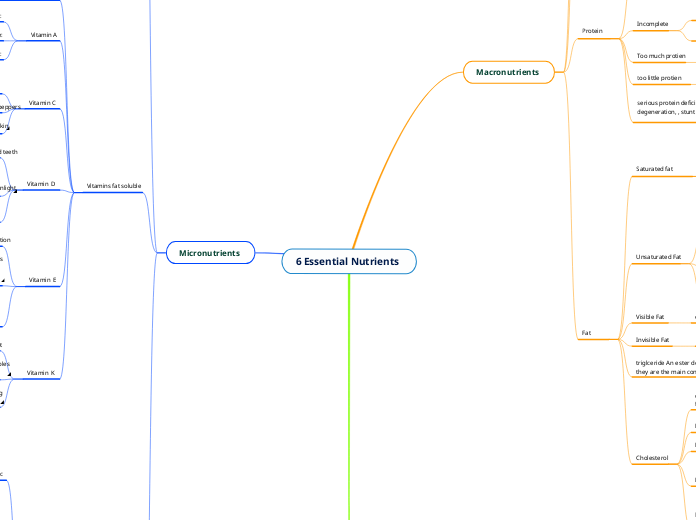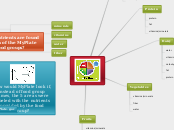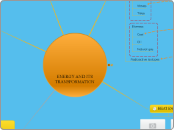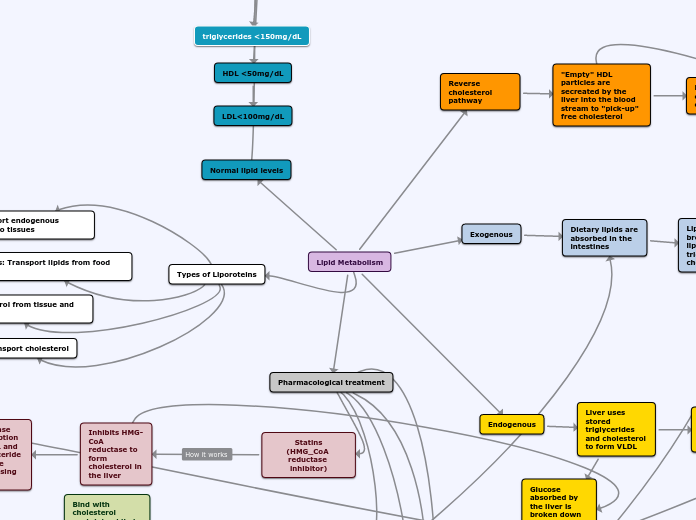6 Essential Nutrients
Micronutrients
minerals
Macro Minerals
Sodium
Deficiency: weakness
muscle cramps
fatigue
Food Source: naturally occurs in many foods
table salt and sea salt
food processed with salt
Function: helps control blood pressure
necessary for muscle and nerve function
Calcium
Deficiency: osteoporosis a disease characterized by thinning and weakening of bones) stunted growth
Food Source: milk and milk products , Broccoli, Legumes, Fish and edible bones
function: Calcium builds bone and teeth used by blood vessels to help transfort blood used by muscles and nerves
Minerals single atoms of elements cannot be created or destroyed by the body. inorganic element or compound needed by the body in small amounts
Trace Minerals
Fluoride
Deficiency:Cavaties and week bones
Food Source: brewed black tea,wine,grapes,raisins,spinach,potatoes
Function: preventing and reversing dental caries and building strong teeth and bones
Iron
Deficiency : Anemia,weakness,fatigue,pale complexion
Food Source : Animal sources: beef,pork,fish,poultry. plant sources: legumes,spinach ,prunes,raisins
Function: hemogoblin in the blood needed for oxygen transfer in the blood stream
Copper
Deficiency: anemia, low body temperature, bone fractures and osteoporosis, low white blood cell count, irregular heartbeat, loss of pigment from the skin, and thyroid problems.
Food Source:organ meats, shellfish, fish, nuts, and seeds as well as whole grains and chocolate
Function: helps your body make red blood cells and keeps nerve cells and your immune system healthy
Zinc
Deficiency: stunted growth
slow wound healing
loss of hair,apetite, and sense of smell
Food Source: beef,pork,poultry,grains,nuts,milk and milk products,bread
Function : helps in healing wounds
helps keeps eyes,hair,nails healthy is a component of insulin and enzymes
Vitamins fat soluble
Vitamin K
Defiency:poor blood clotting
frequent bruising
Food Source:dark green leafy vegetables
plant oils( canola,soybean,olive)
Function:helps blood to clot
Vitamin E
Deficiency:vision problems
muscular problems
Food Source:plant oils
wheat germ
egg yolks
Function:helps maintain immune function
Vitamin D
Deficincy:rickets (disorder characterized by softening and weakening of bones) bone pain, weakness
Food Source:fortified milk
fish oils
can be produced in the body when skin is exposed to sunlight
Function:helps absorb calcium to build strong bones and teeth
Vitamin C
Defiency:Scurvy,bleeding gums,dry skin,
Food Source:citrus fruits,strawberries,tomatoes,peppers
Function: boosts immune system,keeps gums healthy,and repairs bones,blood tissues prevents bruising
Vitamin A
Deficiency:
Food Source:
Function:
a vitamin is a micronutrient an organic compound that is required in small amounts in the body a vitamin is a micronutrient an organic compound that is required in small amounts in the body
Vitamins water soluble
Vitamin B9 (Folic Acid)
Defficiency:Anemia
sore throat
Food Source:leafy vegetables,legumes,grain products,beef,poultry,pork
Function:necessary for the formation of red blood cells important for pregnant women
Vitamin B12
Deficiency:anemia,loss of balance ,weakness
Food Source:animal products,fortified soy products
Function:helps cells grow,makes red blood cells, protects nerve fibre
Vitamin B6
Deficiency:muscle weakness,short term memory loss, skin irritation
Food Source:meat.poultry,fish,leafy vegatbles , whole grain products, nuts lentils,nuts
Function:helps body use energy from macronutrients helps body build red blood cells
Vitamin B3(Niancin)
Deficiency:diarrhea,bermatitis pellagra
Food Source:chicken,beef,pork,liver,fish,peanut butter, whole grain products
Function:keeps nervous system healthy aids in digestion helps body use energy from macronutrients
Vitamin B2 (Riboflavin)
Deficiency: cracks in corner of mouth,smooth and purplish tongue,dry scaly facial skin
Food Source: milk,meat,liver,dark green vegetables , whole grain breads and cereals
Function:helps keep tongue,ips,skin and eyes healthy helps body use protein and carbohydrates and release energy
Vitamin B1( Thiamin)
Deficiency: beriberi(disease characterized by rapid heart rate ,difficulty walking,vomiting,short of breath
Food Source:pork,liver,organ meats ,green vegetables
yeast,whole grain breads,cereal
Function:helps release energy from carbohydrates in foods
Water
Food Source: vegetables, fruit
if you drink too much water your kidneys cant get rid of the excess water. the sodium content of your blood becomes diluted that i called hyponatremia and it can be life threatening
signs of dehydration; headache,dizziness,fatigue ,cramping,weakness,dry mouth
Functions: Removing waste from the body,regulatin body temperature, helping to maintain normal blood pressure, lubricating joints an organs and helping maintain blood volume
we are made up to 60 to 70% of water
Macronutrients
Fat
Cholesterol
blood cholesterol is produced naturally in your body and circulates through your bloodstream
Dietry Cholesterol
Food Source : egg yolk, shrimp, beef, and pork, poultry, as well as cheese and butter
Function: helps make cell membranes, many hormones and vitamin D
Hdl
HDL(high density lipoprotein)
Ldl
LDL( Low density lipoprotein
cholesterol is a waxy fat like substance made in the liver. and found in blood and all cells of the body
high cholesterol .you can develop fatty deposits in your blood vessels these deposit grow makin it difficult for blood flow and can cause heart attacks and strokes
triglceride An ester derived from glycerol and three fatty acids. they are the main constituents o body fat in humans
Invisible Fat
more difficult to see
invisible fat ex: fat in egg yolks, butter fat suspended in whipped cream
Visible Fat
easy to see
visible fat ex: meat the flecks of fat in meat know as marbling
Unsaturated Fat
Defiancy: disrupts the balance of fatty acids in cell membranes, resulting in the development of eicosanoids that trigger inflammatory responses and constrict blood vessels.
Food Source: Olive, peanut, and canola oils. Avocados. Nuts such as almonds, hazelnuts, and pecans. Seeds such as pumpkin and sesame seeds
Function: improve blood cholesterol levels, ease inflammation, stabilize heart rhythms
Saturated fat
Deficiency: dry rashes, hair loss, a weaker immune system
Food Source:butter, ghee, suet, lard, coconut oil and palm oil,cakes.,biscuits,fatty cuts of meat,sausages.bacon,cured meats like salami, chorizo and pancetta.,cheese
Function: provide energy for body
Protein
serious protein deficiency can cause swelling,fatty liver,skin degeneration, , stunt growth in children
too little protien
Muscle wasting, risk of bone fractures
Too much protien
usually sored as fat
Incomplete
Food Source: Plant sources: legumes,grains,some vegetables
those that dont have them are incomplete proteins
Function:
Complete
Food Source : beef,pork,lamb,bison,poultry,seafood,egg,milk,buckwheat,hemp,soybeans
foods that have good amounts of all nine essential amino acids are considered sources of complete protein
Function: support growth and normal maintenance of body tissues
Fibre
Insoluble
Food Source: Whole-wheat flour, wheat bran, nuts, beans and vegetables, such as cauliflower, green beans and potatoes
Function: adds bulk to the stool and appears to help food pass more quickly through the stomach and intestines.
Soluble
Food Source: oats, peas, beans, apples, citrus fruits, carrots, barley and psyllium
Function:lower total blood cholesterol levels by lowering low-density lipoprotein, or "bad," cholesterol levels.
deficiency : You're hungry soon after eating
You have high cholesterol
You have hemorrhoids
You constantly feel tired and sluggish
You are having a hard time losing weight
Examples of food Source
Apples,Berries
Function: helps body regulate the bodys use of sugars. helping to keep hunger and blood sugar in check
Carbohydrates
Simple carbohydrates
Function:used as energy
Food Source: fruits, milk, and milk products.
Complex Carbohydrates
Function: raise blood glucose levels for longer and produce a more lasting elevation in energy
Food Source: peas, beans, whole grains, and vegetables
Sugar
Deficency:
Food Source:sugary beverages, desserts, sweet snacks, sweetened coffee, sweetened tea and candy









